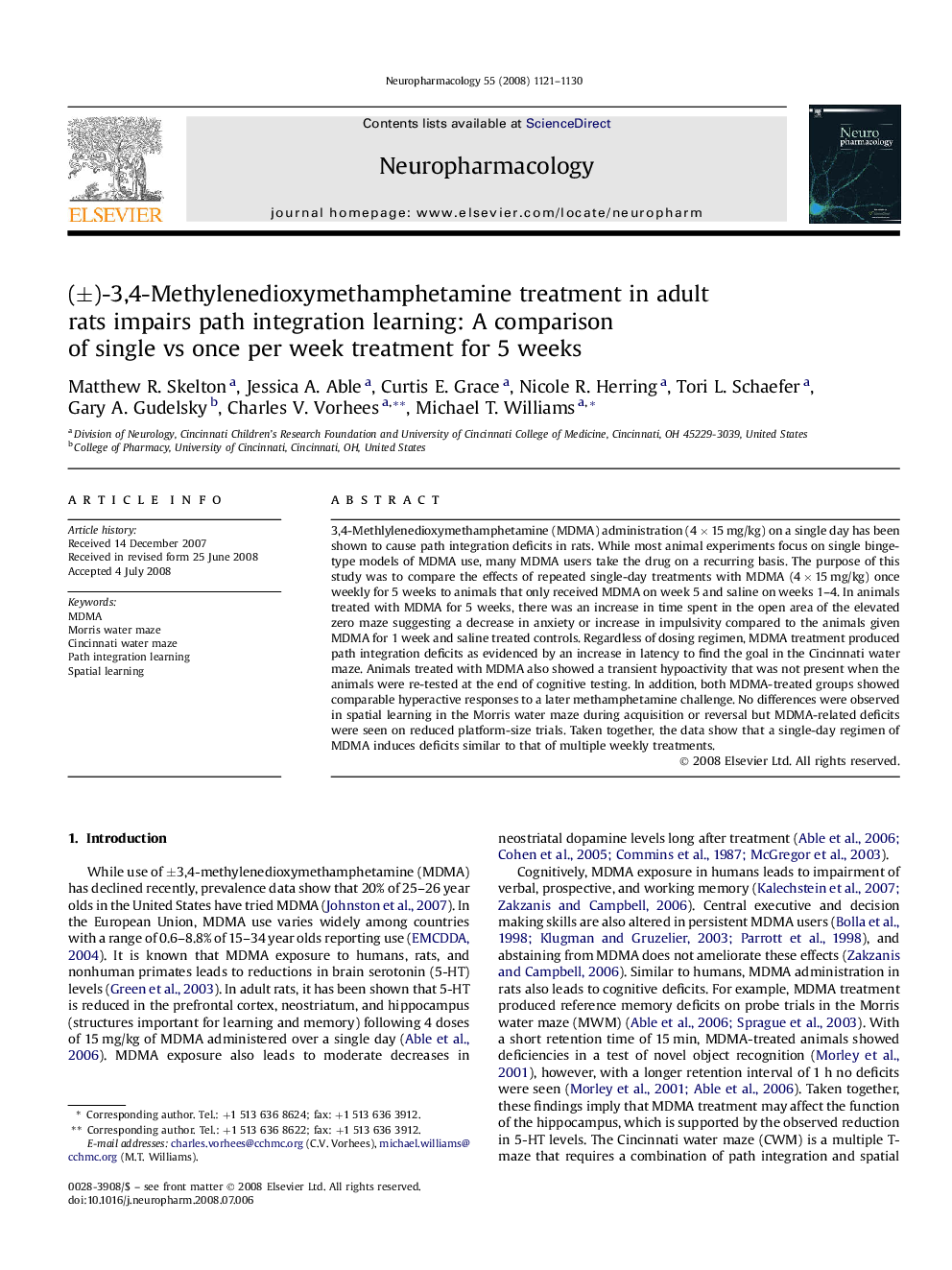| کد مقاله | کد نشریه | سال انتشار | مقاله انگلیسی | نسخه تمام متن |
|---|---|---|---|---|
| 2494528 | 1115569 | 2008 | 10 صفحه PDF | دانلود رایگان |

3,4-Methlylenedioxymethamphetamine (MDMA) administration (4 × 15 mg/kg) on a single day has been shown to cause path integration deficits in rats. While most animal experiments focus on single binge-type models of MDMA use, many MDMA users take the drug on a recurring basis. The purpose of this study was to compare the effects of repeated single-day treatments with MDMA (4 × 15 mg/kg) once weekly for 5 weeks to animals that only received MDMA on week 5 and saline on weeks 1–4. In animals treated with MDMA for 5 weeks, there was an increase in time spent in the open area of the elevated zero maze suggesting a decrease in anxiety or increase in impulsivity compared to the animals given MDMA for 1 week and saline treated controls. Regardless of dosing regimen, MDMA treatment produced path integration deficits as evidenced by an increase in latency to find the goal in the Cincinnati water maze. Animals treated with MDMA also showed a transient hypoactivity that was not present when the animals were re-tested at the end of cognitive testing. In addition, both MDMA-treated groups showed comparable hyperactive responses to a later methamphetamine challenge. No differences were observed in spatial learning in the Morris water maze during acquisition or reversal but MDMA-related deficits were seen on reduced platform-size trials. Taken together, the data show that a single-day regimen of MDMA induces deficits similar to that of multiple weekly treatments.
Journal: Neuropharmacology - Volume 55, Issue 7, December 2008, Pages 1121–1130